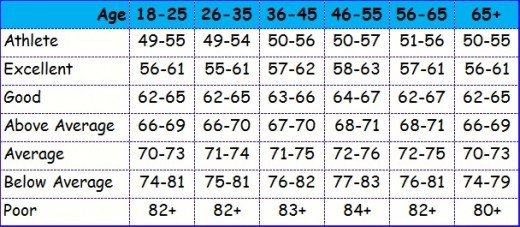With every heartbeat, your heart pumps blood through your body and ensures that your body keeps functioning properly. How many times does your heart beat one day? So many people want to know about it and have questions related to how the heart beats. Keep reading to find answers to all your questions.
How Many Times Does Your Heart Beat a Day?
103,680 times a day on average.
Your heart works like a machine and tirelessly pumps throughout your life to provide your body with enough power to function properly. During the course of an average lifetime, your heart may beat more than two and a half billion times. The average heart beats per minute is 72, with an average lifespan today--75 years, your heart beats 4,320 times per hour, 103,680 times a day, 37,843,200 times a year, and 2,838,240,000 times a lifetime on average.
How Does the Heart Beat?
The atria and ventricles work in tandem to help your heart beat and pump blood throughout your body and heart. Your heart beats due to electrical impulses that travel down to your heart through a specific pathway. You already know the answer to your question how many times does your heart beat a day, here is how it all works.
- SA node: Also known as your heart's natural pacemaker, SA node is located in the right atrium and is responsible for starting the impulse. The electrical activity produced here makes the walls of the atria to contract and force blood into the ventricles. The SA node also determines the rhythm and rate of your heartbeat.
- AV node: There is a cluster of cells right in the center of your heart between the ventricles and atria. It is called AV node that helps slow down the electrical signal before it enters the ventricles. This delay is very important because it gives the atria enough time to contract before the contraction of the ventricles.
- His-purkinje network: It is a pathway of fibers responsible for sending the impulse to the ventricles and causes the muscular walls to contract.
After this, the SA node sends another impulse and the process begins all over again.
How Fast Does the Normal Heart Beat?
Your heart may beat faster if your body needs more oxygen-rich blood. When you are not doing any strenuous work, your heart beats about 50-100 times a minute mainly due to the SA node. During activity, the rate increases and goes over 100 beats a minute to provide your body with more oxygen-rich blood. Some medical conditions may also affect how fast or slow your heart beats.
How Do You Know How Fast Your Heart Is Beating?
You can measure your heart rate by feeling your pulse. You need to count the number of times your heart beats in a minute by feeling your pulse. Simply, place your middle finger and index finger of one hand on the inner wrist of your other arm. Keep it below the base of the thumb. Feel for your pulse and count how many times you feel the taps in 10 seconds. Now, multiply the number with 6 to measure your heart rate per minute. By feeling your pulse, it is also possible to check if your heart rhythm is consistent or not.
When to Worry About Your Heartbeat?
How many times does your heart beat a day? Once you know it, you need to compare it with normal heartbeat to determine if you should see a doctor. Keep in mind that so many factors will determine exactly what is considered a fast heart rate.
Normally, your heart rate should stay between 60 and 80 beats per minute if you are not doing any physically demanding work.

Typically, your heart is beating fast if your resting heart rate is higher than 100 beats a minute. If you think your heart rate is faster than it should be, go talk to your doctor. You should see your doctor if you have other symptoms such as activity intolerance, shortness of breath, extreme fatigue, and palpitations. Your doctor will look into it carefully and determine the underlying cause of trouble.
